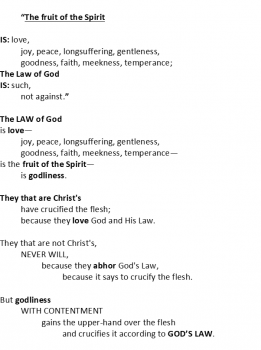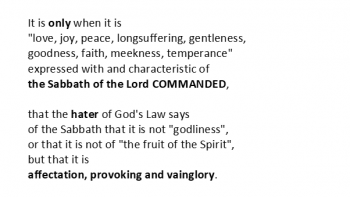Let me share.I see the prohibition in the fact that the Law condemns their actions, thereby denying them entrance to God's kingdom. The Law makes provision for their sins to be covered, yet, just the same, they need to be justified.
But yes, the Law was not given to give Israel eternal life.
Much love!
Even before the law was given as it was given, in the form of a written code, sins and transgressions are committed by man. And it is a given that such actions were condemned, for if not, man would not gave been called sinners or transgressors. Before the law, it was man’s conscience that condemns them. The law was given at the time of Moses. But it was not given to all peoples, but was given to them whom God had taken out of slavery in Egypt by Moses. So, for the rest of the peoples in the earth, conscience remain to be that condemns them of sin.
God gave the law in covenant with children of Israel through Moses, as a written code which they should perfectly observe and keep and so live by it, and in turn God will prosper them and bless them and make them a kingdom of priests and a holy nation. Now, in any event that one or the whole nation transgress the law, it is the law that condemns them. But, the law provided for them to atone for sin through the Levitical priesthood system of atonement, for the forgiveness of sins, and the judgment of God shall not come upon them, and be reconciled to God.
So we see the goodness of the law. While it condemns them, it provided a way for them to be forgiven of their sins and be reconciled and be at peace with God. Thus, it is not that the law condemns them that it denies them entrance to the Kingdom of God. To the contrary, it kept them under guard and provided them even, a way to be reconciled to God and a chance to live on with peace in covenant with God, and not remain in a state of condemnation and in certain fearful expectation of judgment, and fiery indignation of God.
But of course we know by now that the law was only a shadow of the realities that which would come later and be revealed. And that is the Gospel story concerning Jesus Christ.
Tong
R1731




